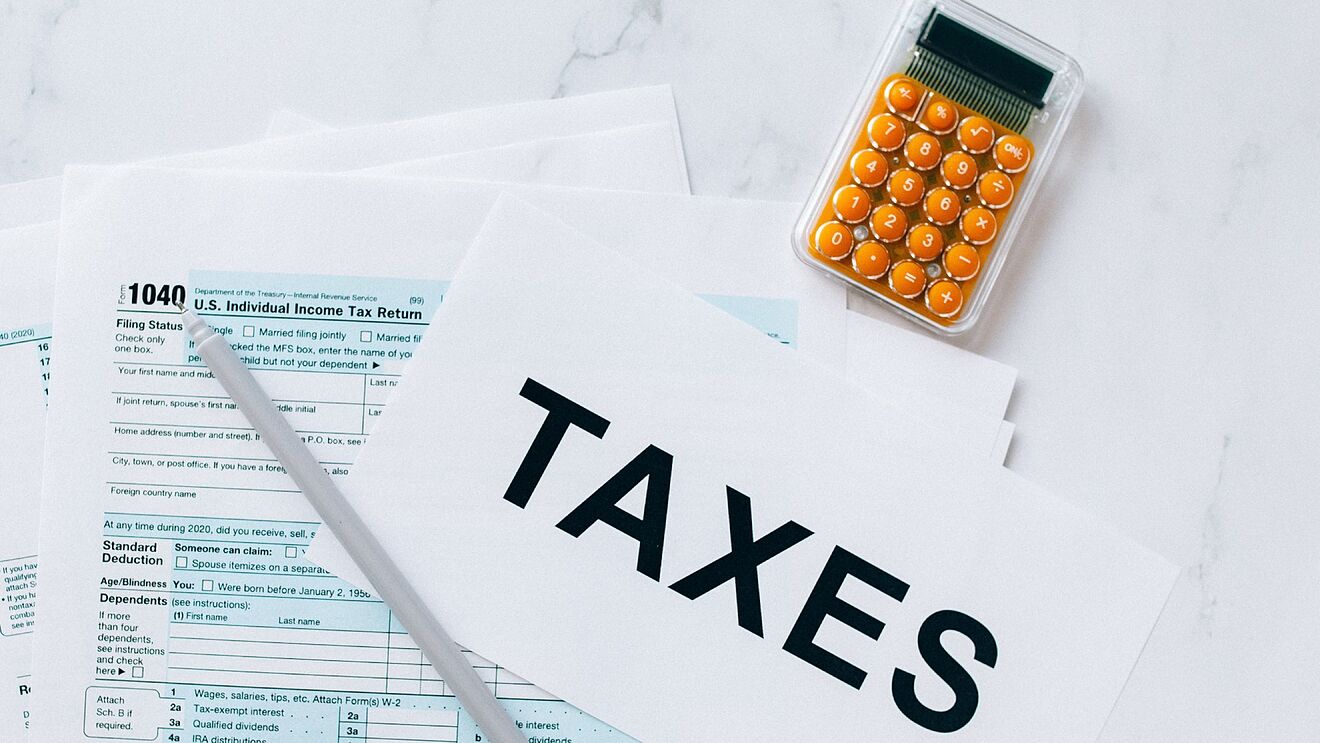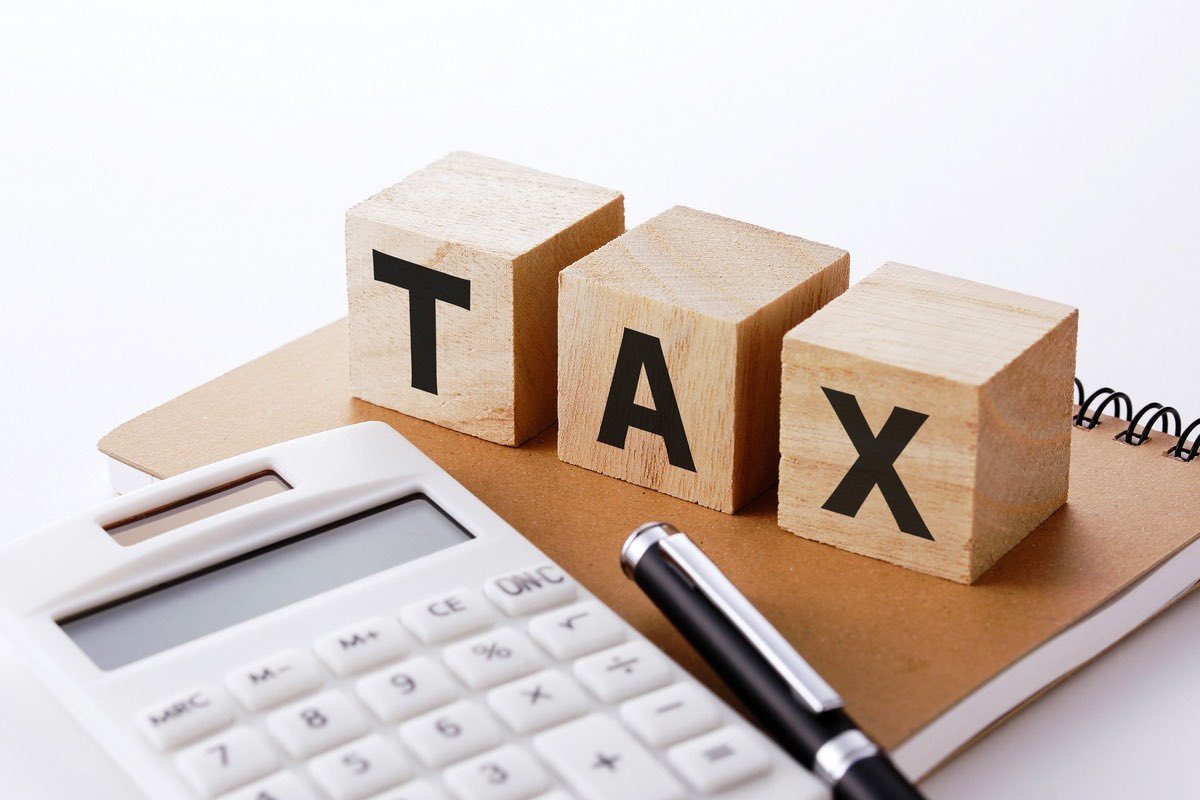Tips For Taxes As An American Expat Living Abroad
The rules for US expat taxes can be hard to understand for Americans who live abroad. Even worse, if you fail to file correctly, it can result in significant penalties. Still, there are a lot of tax benefits for US expats that are only available if they plan carefully and file correctly.
Author:Camilo WoodReviewer:Alberto ThompsonNov 09, 202215.1K Shares505.4K Views

"Do U.S. citizens have to pay taxes on money they make outside the U.S.?" "As a U.S. citizen working abroad, what do I need to do to file my U.S. income tax?" Even for the most financially savvy Americans, the US expat tax rule can be confusing and even hard to understand.
If these questions sound familiar, you're not alone. Even if you live in Tokyo, Japan, or St. Louis, Missouri, you still have to pay taxes to the US as long as you're a citizen, no matter what you might think. Ready to file your US expat taxes?
Do Expats File US Taxes?
Yes, almost all US citizens, no matter where they live in the world, must file a US Federal Tax Return. This is true if your total income from all sources is more than the filing threshold (which varies by filing status). This worldwide income could come from:
- Wages
- Salary
- Interest
- Dividends
- Rental Income
No matter how you file, if you are self-employed, the filing threshold is $400. Even if your income is below the limit for your filing status, you may still have to file. For example, if you get certain tax credits or refunds, you will have to file even if you don't meet the other requirements.
US Expat Tax Benefits
The good news is that Americans who live outside of the US can avoid being taxed twice and even have their US taxes lowered.
US expat tax are different from the tax returns you may have filled out when you lived in the United States in many ways. Even though expats have to do more, there are many tax benefits for Americans living abroad, such as:
- With the Foreign Earned Income Exclusion, you can keep income from being taxed (FEIE)
- Using the Exclusion or Deduction for Foreign Housing to lower living costs
- Using the Foreign Tax Credit (FTC) to make up for taxes paid to other countries
- Using Tax Treaty Benefits to keep other income from being taxed in the US
With these exclusions, deductions, and credits, many US citizens who live abroad can lower or even get rid of their US tax bill.
US Expats Are Taxed On Their Worldwide Income
The IRS says that Americans who live and work abroad still have to pay US taxes on all of their income, no matter where they live or work. So, to figure out if they need to file, expats must add up their US and foreign income.
Most US income for expats comes from investments or rent. If you earn money abroad and get a Form 1099, the IRS keeps track of it. Expats' foreign income usually includes their salary earned abroad, i.e. income earned as an employee outside of the U.S.
The income filing threshold is usually based on each tax filing status's standard deduction. People whose spouses are not US citizens, on the other hand, are usually assumed to file separately and have a very low filing threshold of only $5 USD per year. Yes - just FIVE dollars!
How Much Taxes Do You Pay If You Work Overseas?
Now that you know U.S. citizens have to pay taxes on foreign income, you might be wondering how much you have to pay if you work abroad. After paying your U.S. and host country income taxes, you might wonder if you'll have any money left in the bank.
Even though most U.S. citizens who work abroad have to file taxes, expat tax rules have changed so that most expats don't owe any money at the end of the year.
Even though there is no overall U.S. expat tax exemption, there are some exclusions and credits, like the foreign earned income exclusion and the foreign tax credit, that can help U.S. citizens living abroad pay less in taxes.
Tax exclusions and tax credits are just two examples of the many different tax rules that apply to U.S. expats working overseas. It could be helpful to work with a qualified and trustworthy expat tax filing software to help you manage your worldwide tax burden.
3 Softwares You Can Use To File Expat Taxes
Use Expatfile.tax - The #1 US Expat Tax Filing Software
Expatfile helps people who don't live in the United States file their taxes online. It lets US citizens who live and work abroad file their tax returns online. It has a solution for step-by-step ex-pat tax guidance, automatic tax calculations, instant e-filing with the IRS, automatic acceptance acknowledgment, and more.
US expats can now e-file their own expat tax return in as little as 10 minutes with Expatfile's do-it-yourself tax software. It's smart, easy, and safe. Don't worry for long! You can check their Expatfile.tax LinkedIn to follow them.
Not sure where to begin? Confused by terms like foreign tax credit and foreign earned income exclusion? No problem! Their tax software is easy to use, so it will help you through the whole process. Unlock your tax freedom and get back to living as an expat!
Why Use Expatfile.tax?
US expats still have to file a tax return with the IRS every year, just like every other American! Most expats won't have to pay US taxes in the end, but they often find it hard and frustrating to figure out the US tax code.
Expatfile comes into play here! Their expat tax software that you can use yourself was made with expats in mind. Expatfile lets expats make and e-file their own tax returns from abroad.
Their expat tax software is easy to use and doesn't require any tax knowledge. It also comes with unlimited chat and email support, so expats don't have to worry about filing their own tax returns.
Super Fast, Super Reliable
They make it easy for you to e-file your US expat tax return! No need to know anything about taxes, just start and you'll be done in no time! Their tax software is so fast that many US expats can e-file their tax return in as little as 10 minutes.
Expatfile.tax Top Priority Is Safety
They care a lot about the privacy of your data, and they do everything they can to protect it. They encrypt all data and use the highest standards to protect your personal information. They also keep an eye on any suspicious activity to make sure they are protecting your data as well as they can.
MyExpat Taxes - Trusted US Expat Tax
To be honest, if the popular tax software used for US tax returns worked well for US Expats. US Expat Tax Software is only for US Expats, which makes the process as easy as possible for Americans living abroad. Most of their expats file their taxes in less than 30 minutes.
So, it is now much easier to file US taxes from the UK, the EU, and other places. US Expats only need to fill out some simple information, like where they work abroad, how long they've been there, and what kinds of income they have.
From there, we'll figure out which tax benefits and forms are best for you to use on your return as an expat. To send your US tax return from outside the US, you don't need a US address. Once you finish the process with our software, they will send all the forms to the IRS electronically. It's that cool, and they also save you a lot of time you don't need to waste.
MyExpatTaxes also helps by giving tax guides that answer the most important questions. For example, they get questions every day about "how to pay US taxes while living abroad" or anything else that has to do with "American working abroad taxes."
TurboTax - Save Time Using This Software
TurboTax is made just for US taxpayers who live and work in the United States. This means that because they are "Tax Prep USA Support," they can't help US expats as much as they could. So it might be hard for TurboTax to answer questions like "How do I pay US taxes from abroad?"
You can claim the Turbotax Foreign Earned Income Exclusion, but you will have to do a lot of work on your own before the software will help you. The important Form 8833 for Treaty-Based Disclosures is NOT available in TurboTax US.
Instead, TurboTax will tell you to download Form 8833, fill it out, and attach it to your already-made tax return. After that, you'll have to mail the papers in and pay for postage.
The FBAR is not available on TurboTax. As this post explains, the Foreign Bank Account Report is a form that you must fill out if you are a US citizen living abroad and have a bank account or other financial account set up abroad.
Because you filled out this form, you won't be taxed on your foreign bank account.
How To File Your US Expat Taxes From Abroad?
Living abroad can be fun, but it can also be hard. Your US tax return also gets harder to figure out. But US taxpayers who live abroad may be able to take advantage of big tax breaks if they know what tax laws apply to them.
This will give you an overview of the US expat tax and the main tax effects of living outside the US as a US citizen. Of course, every situation is unique.
People Also Ask
How Do Taxes Work For US Expats?
Thanks to the Foreign Earned Income Exclusion and the Foreign Tax Credit, most expats will not have to pay US taxes. But if their gross worldwide income is more than the annual filing threshold, expats must file taxes every year. Even if you don't owe the IRS any money, you may still need to file.
How Much Tax Does A US Expat Pay?
US social security taxes are made up of 6.2% for employees and 2.9% for Medicare Tax. For self-employed expats, this adds up to 15.3% of their income (12.4% for social security and 2.9% for Medicare Tax). People who live in another country may also have to pay social security taxes in that country.
Do US Expats Get Double-taxed?
If they qualify for the Foreign-Earned Income Exemption, Americans who work in other countries don't get taxed twice. Expats should know that their taxes in the United States are based on their citizenship, not where they live.
Conclusion
It can be hard to figure out how to read and understand the US tax code. And if you are an American living abroad, the information is even harder to understand. In this post, we made it easier to understand US expat tax, and we also suggested software that would make it even easier to file.
With Expatfile.tax, you can get instant updates on the status of your tax return as an expat. This gives you peace of mind knowing that the IRS has received and accepted your tax return.

Camilo Wood
Author
Camilo Wood has over two decades of experience as a writer and journalist, specializing in finance and economics. With a degree in Economics and a background in financial research and analysis, Camilo brings a wealth of knowledge and expertise to his writing.
Throughout his career, Camilo has contributed to numerous publications, covering a wide range of topics such as global economic trends, investment strategies, and market analysis. His articles are recognized for their insightful analysis and clear explanations, making complex financial concepts accessible to readers.
Camilo's experience includes working in roles related to financial reporting, analysis, and commentary, allowing him to provide readers with accurate and trustworthy information. His dedication to journalistic integrity and commitment to delivering high-quality content make him a trusted voice in the fields of finance and journalism.

Alberto Thompson
Reviewer
Alberto Thompson is an acclaimed journalist, sports enthusiast, and economics aficionado renowned for his expertise and trustworthiness. Holding a Bachelor's degree in Journalism and Economics from Columbia University, Alberto brings over 15 years of media experience to his work, delivering insights that are both deep and accurate.
Outside of his professional pursuits, Alberto enjoys exploring the outdoors, indulging in sports, and immersing himself in literature. His dedication to providing informed perspectives and fostering meaningful discourse underscores his passion for journalism, sports, and economics. Alberto Thompson continues to make a significant impact in these fields, leaving an indelible mark through his commitment and expertise.
Latest Articles
Popular Articles

